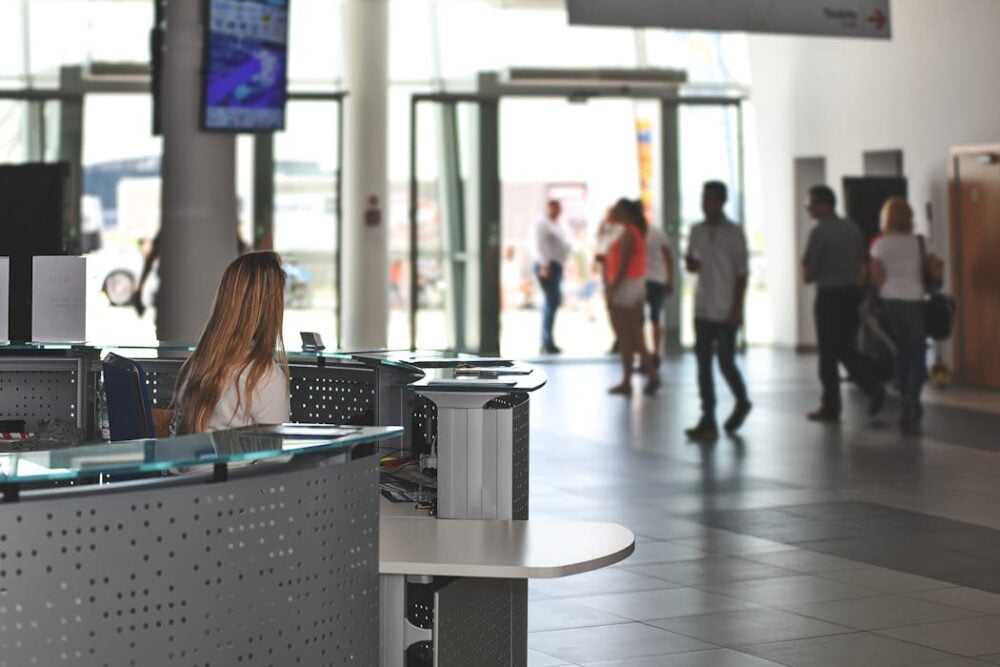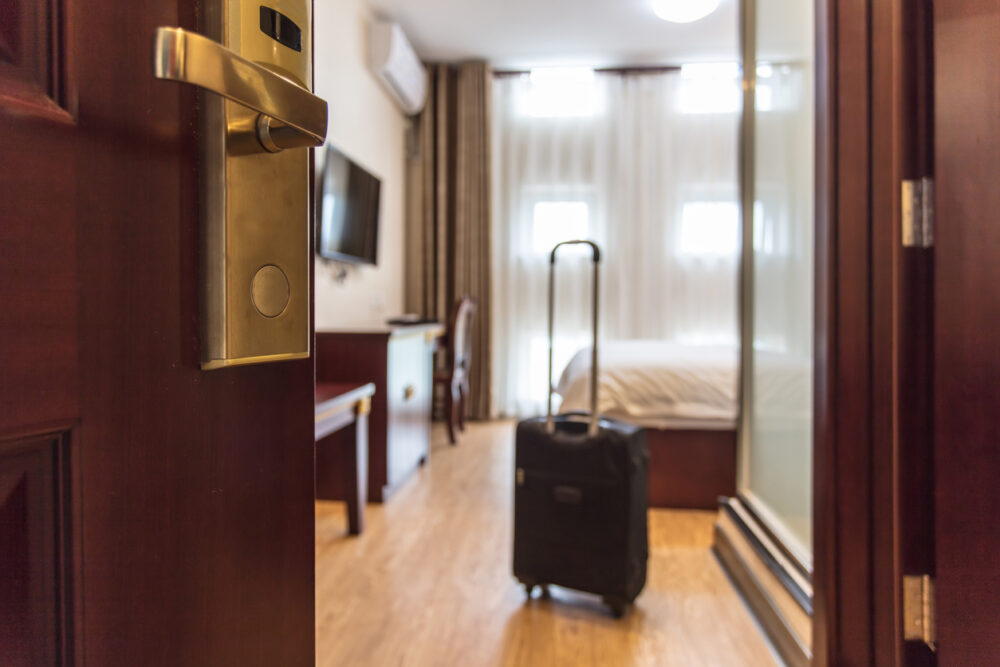Recognizing these check-in warning signs helps avoid unwelcome surprises throughout your stay.

<p>Checking into a hotel should be a smooth start to a relaxing trip, yet certain red flags at the front desk can hint at trouble ahead. From confusing procedures to unexpected fees, these early warning signs reveal potential challenges with customer service, room quality, and hotel policies. By staying attentive during check-in, travelers can better protect themselves from a difficult stay before it truly begins.</p>
1. Long waiting lines suggesting understaffing or poor organization at reception.

Long waiting lines during check-in often reveal understaffing or disorganization. When guests cluster tightly around a busy desk, staff may struggle to maintain efficiency and attention. A well-organized check-in process can offer early reassurance, gently easing away the travel day’s stress.
Observing reception shows the broader hotel’s management style. Patience might fade if overwhelmed staff can’t manage the flow. This subtle indicator might suggest more systemic issues, hinting at potential complications affecting the entire stay and overall guest satisfaction.
2. Unfriendly or rushed staff creating an unwelcoming first impression for guests.

An unfriendly or rushed staff at reception can mar a guest’s initial experience. With a simple frown or curt tone, frontline employees shape first impressions, affecting how welcomed guests feel. Polished welcome rituals soothe weary travelers, setting a positive tone for their visit.
A hotel’s atmosphere often mirrors its customer service culture. Warm greetings may translate to attentive service throughout the property. Conversely, if the frontline crew seems hurried, it could predict a stay lacking the care and attention that guests crave.
3. Confusing or unclear check-in procedures leading to avoidable delays and frustration.

Confusing check-in procedures can turn arrival moments into a frustrating puzzle. Guests, eager to settle in, may face unclear instructions or convoluted processes. Clear communication greases the wheels, streamlining the journey from reception desk to room.
Ambiguity here could signal communication issues elsewhere, prompting concerns about how guest needs are addressed. A straightforward check-in suggests a commitment to ease and transparency, offering peace of mind that similar clarity extends to all guest interactions.
4. Requests for unexpected deposits or additional fees indicating hidden costs ahead.

Requests for unexpected deposits or fees upon arrival can unsettle travelers. Without prior notice, these hidden costs create an aura of mistrust, casting doubt on billing transparency. Clear fee structures offer reassurance, ensuring travelers know what to expect upfront.
When surprise charges surface, they hint at potential extra costs lurking around each corner of the stay. Thoughtful budgeting becomes threatened, with trust in the hotel’s intentions possibly eroding. Transparency in fees signifies respect for guests’ financial planning.
5. Lack of clear communication about hotel amenities, rules, or policies upfront

Lack of upfront communication about hotel amenities or rules often leaves guests feeling unprepared. Eager travelers benefit from knowing what’s available to them, from breakfast hours to pool policies. Detailed information nurtures confidence and empowers guests to optimize their stay.
Inadequate detail sharing may indicate larger communication gaps or a disorganized staff. Considerate hotels ensure guests recognize their siting attractions and responsibilities. Clarity supports comfort and encourages exploration, elevating the hospitality experience.
6. Visible maintenance issues near the reception area hinting at wider property neglect.

Visible maintenance issues upon entering a hotel can indicate neglect beyond cosmetic details. A peeled-paint wall or broken decor near reception often catches the eye, prompting concerns about the property’s overall upkeep. First impressions matter.
Potential neglect may extend beyond the lobby, raising doubts about in-room cleanliness or safety. Seeing obvious repairs needed suggests priority problems or potential underfunding, challenging the perceived value and care in hotel management.
7. Difficulty confirming reservations that may point to booking mix-ups or errors.

Reservation confirmation trouble at check-in might signal booking errors or mismanagement. A front desk unable to locate a reservation despite provided confirmation unnerves weary travelers, sowing doubts about further missives. Reliable systems ensure seamless guest journeys.
Difficulty securing a reservation implies technological or administrative lapses. Inadequate booking protocols hint at disorganization, suggesting further complications. Trust grows fragile without prompt, consistent corrections, prompting travelers to contemplate escape routes.
8. Inadequate luggage storage or assistance suggesting limited guest support services.

Inadequate luggage storage or assistance on arrival can hint at limited guest support services. Finding space or help for bulky bags becomes cumbersome, muddling first moments in the hotel. Swift aid and storage reveal attention to practical details, enhancing hospitality.
A scarcity of storage solutions or staff aid implies wider systemic limitations draining guest experience. Assistance shortfalls suggest constrained resources or prioritization challenges, signaling possible discomforts ahead during the stay, needing customer adaptability.
9. Overcrowded or cluttered lobby space reducing comfort during initial arrival moments.

An overcrowded or cluttered lobby diminishes guest comfort upon arrival. Navigating a tight space packed with noise and activities risks stressful initial impressions. An open, welcoming lobby invites relaxation, crucial after travel’s rigors.
Thriving hustle bustles may imply future delays or reduced serenity in hotel amenities. Constrained areas reflect management styles prioritizing density over ambiance. For guests, peaceful transitions describe their preferred check-in visions, free from overwhelming sensory crowds.
10. Absence of staff willing to answer questions signaling poor customer service focus.

The absence of staff willing to answer guest questions at check-in reflects a deficiency in service focus. Guests crave instant assistance for inquiries about the property’s nuances or local intel — the hotel introducing them to their temporary home.
Should questions yield silence or delay, it suggests broader service deficits impacting guest satisfaction. Engaged staff translates to an enriched guest experience, bridging knowledge gaps and fostering loyalty. Apathy risks erosion of hospitality’s welcoming heart.
